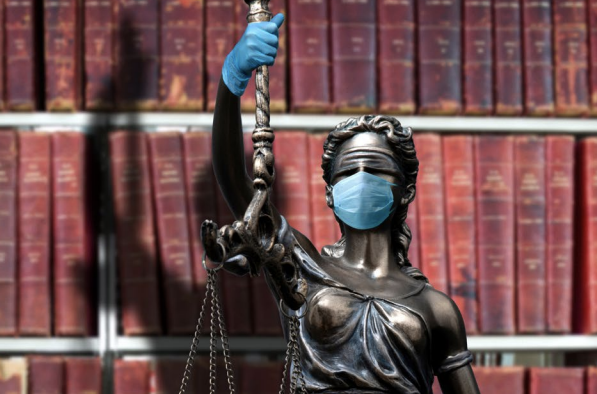



The COVID-19 pandemic has generated the nation’s worst public health and economic crises in over a century, creating loss and hardship for hundreds of thousands of Marylanders. Many Marylanders now face momentous challenges in almost every aspect of their lives, from health, food, employment, and housing to finances, life and health planning, and family issues. Each of these challenges often has a legal component that can only be resolved within the civil justice system. But that system, too, has become strained by the pandemic. Emergency health orders suspended court operations and shuttered public libraries, courthouse legal clinics, and social services and legal aid offices. Conventional pathways for conducting outreach and disseminating information to people who needed it were disrupted. Even remote hearings, intended to keep legal procedures on track, presented barriers, especially for those lacking internet access or in-home technology.
In June 2020, the Maryland Attorney General, Brian E. Frosh collaborated with the Maryland Access to Justice Commission to establish the Attorney General’s COVID-19 Access to Justice Task Force to assess the civil legal process and recommend solutions that would bolster racial equity. The Task Force brought together 43 leaders in the public, nonprofit, and philanthropic sectors; the legal and business communities; the judicial and legislative branches; and academia. Additionally, most of Maryland’s federal delegation served on the Congressional Advisory Committee. The Task Force’s mandate was to craft policy responses with a clear-eyed view of the structural racism and inequities that have both deepened the challenges faced by communities of color during the pandemic and have denied access to the civil justice system so central to resolving those challenges.
In “Confronting the COVID-19 Access to Justice Crisis,” written with support from the Abell Foundation, the Task Force examines COVID-19’s impact and makes 59 concrete recommendations on how to deploy resources to ensure the State’s most vulnerable remain housed, fed, safe, secure, employed, healthy, and connected to civil justice.
Even before the pandemic, most low- and moderate-income Marylanders were navigating this civil justice system on their own, without legal help or assistance. They frequently faced severe and unjust consequences—like eviction or the denial of protection from abuse—not because they did anything wrong, but because they did not understand their rights, did not know where to get help, or did not receive help when they sought it. As with so much else before the pandemic, the difficulties in navigating the system fell most heavily on low-income persons, people of color, and those with disabilities. Because of longstanding structural barriers and racism, Black and Hispanic communities are more likely to face eviction, debt collection, and health disparities, which in turn make them more vulnerable to and exacerbate the collateral consequences of COVID-19.
The report concludes that the State’s civil justice system needs new support from both the State and the legal community to ensure that the system is truly fair to all. The Task Force offers this report as a roadmap for policymakers, elected officials, the Judiciary, and advocates to help Maryland strengthen its civil justice apparatus and protect Maryland’s most vulnerable.
—
Read the Attorney General’s press release detailing the MD General Assembly’s efforts to address these challenges. (Added April 15, 2021)